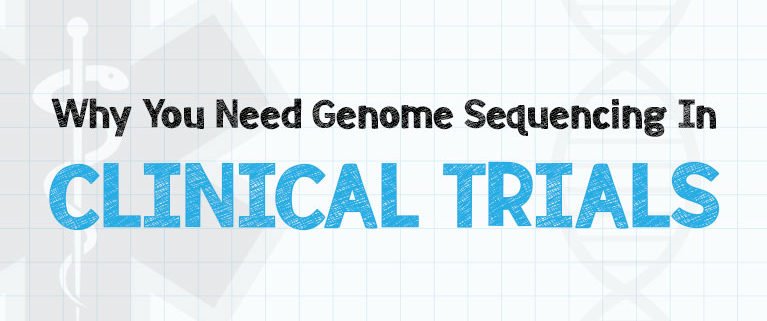Why You Need Genome Sequencing in Clinical Trials
The Challenges of Clinical Trials
Working on clinical trials in the pharmaceutical or clinical research field can frequently be a messy process with numerous complications. You can feel blocked and delayed by staggering testing costs and lengthy trial durations. There are, however, many ways to optimize clinical trials through enrollment planning, cost benchmarking, forecasting and much more. One of the biggest cost levers is ensuring that the most effective patients are brought into your trial and genome sequencing can make an impact here.
Moving Away from a Phenotypic Perspective
The techniques used in inclusion and exclusion criteria are largely based on phenotypic data, such as age, gender, medical history, current medical conditions, and stage of the disease. Phenotypic data doesn’t always tell the full story and is an easy area for improvement. Applying genome sequencing here as an alternative way to vet patients can play a huge role in not only confirming the accuracy of selected patients but also discover new candidates that may have been overlooked.
Genome Sequencing in Cancer Clinical Trials
Clinical trials for cancer therapeutics is a prime example of an area that can reap the benefits genome sequencing. Researchers can gain incredible insight by sequencing both the germline genome and transcriptome to better understand a patient’s current immune system state. These results can be key in identifying patients who may be more receptive towards a certain drug treatment by identifying signal transductions that inhibit cancer cells.
Understanding cell signaling through pathway analysis on patients can also provide more clarity for whether to decrease or increase treatment methods. Instead of relying solely on the broad diagnosis, analyzing cell signaling through genome sequencing can unlock specifics regarding cancer function on an individual patient level. This allows researchers to establish tighter clinical trial parameters. Reducing the scope of the patient cohort can not only save money but increase the probability of successfully progressing through each clinical trial stage. In a 2015 NCBI Manuscript, author Lillian Siu suggested that “It is crucial for the cancer community to support genomic-based clinical trials” to help accelerate the precision medicine therapeutic approach.
Moving to Precision Medicine
Genome sequencing is gradually decreasing in cost and producing higher quality results in rapid time frames. With many sequencing methods available, such as transcription, whole genome sequencing, and targeted sequencing, clinical research can easily analyze individuals for results as well as compare across populations for cohort creation. With a reduction in overall costs and a decrease in time spent designing these trials, it’s time to start thinking about how genome sequencing can benefit your next clinical trial.
To implement genome sequencing in your next clinical trial, contact us for a free quote.




Leave a Reply
Want to join the discussion?Feel free to contribute!